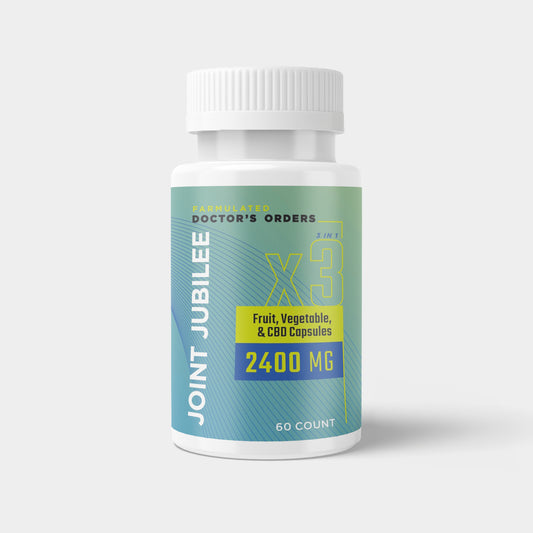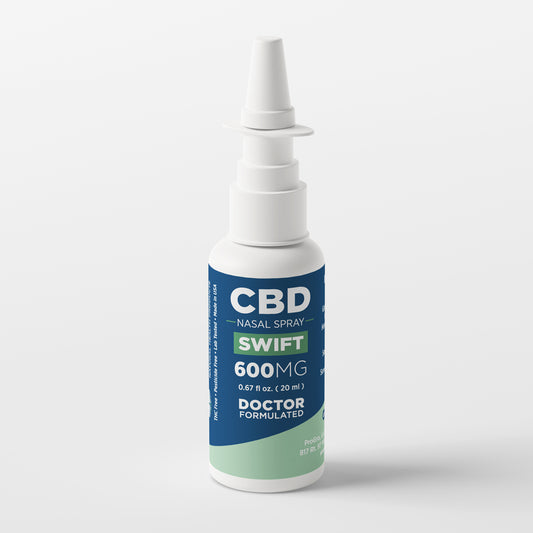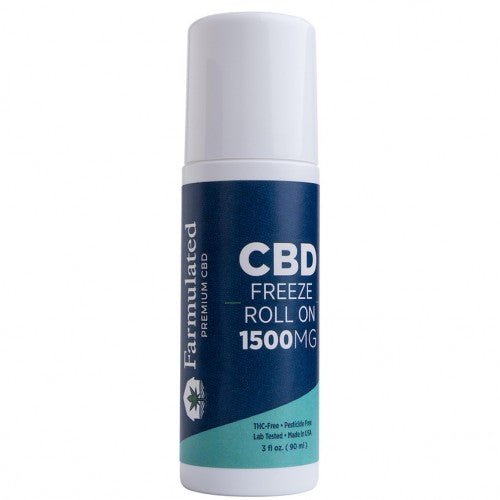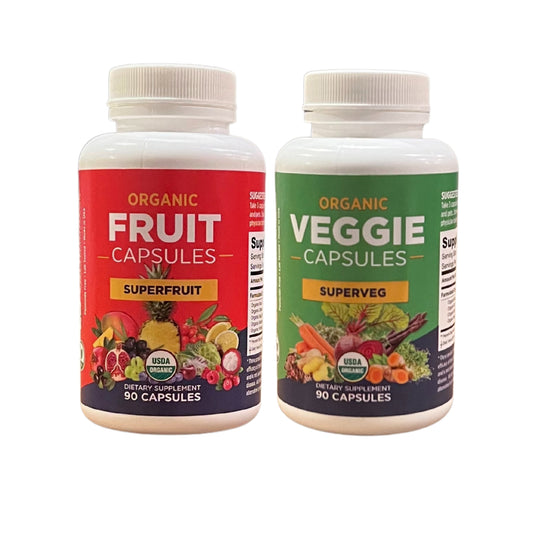CBD, or cannabidiol, is a non-psychoactive chemical compound found naturally in the cannabis plant that has been gaining a lot of popularity for its potential therapeutic benefits. One of the most common reasons people use CBD is to alleviate anxiety symptoms. However, some individuals have reported experiencing anxiety attacks after using CBD.
Anxiety attacks are sudden and intense feelings of fear, panic, or apprehension. They can sometimes be triggered by a variety of factors, such as stress, trauma, or certain medications. Some people who have experienced anxiety attacks in the past may be more susceptible to experiencing them again when using CBD, particularly if they have an underlying anxiety disorder.
The exact mechanisms by which CBD may cause anxiety attacks are not fully understood. However, it is believed that it may interact with CB2 receptors in the brain and nervous system, leading to rebound anxiety or induced anxiety in some individuals.
It's vital to note that while CBD may be helpful for some individuals with anxiety disorders, it is not a cure-all and should be used under the care and guidance of a medical doctor or healthcare professional. If you have experienced anxiety attacks before or have an underlying anxiety disorder, it's crucial to discuss your options with a medical healthcare professional before trying CBD.
In addition to discussing your options with a healthcare professional, there are other steps you can take to reduce your risk of experiencing an anxiety attack when using CBD. Start with a fairly low dose and gradually increase it over time. This will allow you to gauge how your body reacts to the compound and adjust accordingly.
Another way to reduce your risk of experiencing an anxiety attack when using CBD is to choose high-quality products from reputable sources. Look for the products that have been tested by third-party labs and contain accurate information about their ingredients and dosage.
Can CBD Cause Anxiety Attacks?
Dosage, Tolerance, and Pre-existing Anxiety Disorders
CBD has been largely touted as being potentially helpful for anxiety disorders (like generalized anxiety disorder) due to its interaction with the body's natural endocannabinoid system. However, it is crucial to note that while CBD may not directly cause anxiety attacks, it may trigger anxiety symptoms in some individuals. This is because CBD can interact with the same receptors in the brain that are responsible for regulating anxiety levels.
Underlying factors such as dosage, individual tolerance, and pre-existing anxiety disorders may contribute to the likelihood of experiencing anxiety symptoms after taking CBD. For example, individuals who are more sensitive to the effects of CBD may be more likely to experience increased anxiety levels when using it.
Additionally, those with pre-existing anxiety disorders may also be more susceptible to experiencing negative side effects from CBD use. It is important for individuals with a history of anxiety or other mental health conditions to consult with a doctor or other healthcare professional before using CBD.
CBD Interactions with Medications
Another factor that may impact the likelihood of experiencing anxiety symptoms after taking CBD is medication interactions. CBD has been shown to interact with certain medications commonly used to treat anxiety and depression, potentially exacerbating existing symptoms.
For example, CBD may increase blood concentrations of antidepressants such as fluoxetine (Prozac) and paroxetine (Paxil), which could possibly lead to an increased risk of side effects such as dizziness and nausea. It is important for individuals taking medication for anxiety or depression to speak with their healthcare provider before using CBD.
Quality and Purity of CBD Products
The quality and purity of the CBD product being used may also impact its effects on anxiety levels. The lack of new regulation in the industry means that there are many low-quality products on the market that may contain harmful contaminants or inconsistent levels of active ingredients. Understanding how long CBD products remain effective and addressing questions like, "Does CBD oil go bad?" can help users make informed decisions about storage and usage.
It is vital for consumers to do their research when purchasing CBD products and choose reputable brands that prioritize quality and transparency in their manufacturing processes. Additionally, third-party lab testing can provide assurance that a product contains the advertised amount of CBD and is free from harmful contaminants.
Consulting with Healthcare Professionals
Given the potential for negative side effects and interactions with medications, it is important to consult with a healthcare professional before using CBD. This is especially true for those individuals with pre-existing anxiety or other mental health conditions.
Your doctor or healthcare provider can help you determine whether CBD is an appropriate treatment option and recommend a safe dosage based on individual factors such as age, weight, and medical history. They can also monitor you for any potential side effects or interactions with other medications.
THC Levels in CBD Products and Their Link to Panic Attacks, Opt for THC-Free CBD Products
CBD products have become increasingly popular due to their potential health benefits. However, some people are hesitant to try these products because of the fear that they may cause panic attacks or anxiety. This fear is often linked to the presence of tetrahydrocannabinol (THC) in CBD products.
THC is a psychoactive compound that you can find naturally in cannabis plants that may cause panic attacks and anxiety. When consumed, it binds to the cannabinoid receptors in the brain, which may lead to an increase in heart rate, blood pressure, and feelings of paranoia.
Pure CBD products contain less than 0.3% THC. This low level of THC is not considered psychoactive and should not produce any intoxicating effects.
Hemp extract is derived from hemp plants, which contain high levels of CBD and relatively low levels of THC. Hemp extract has become a popular source for CBD products because it contains such low levels of THC.
Synthetic cannabinoids are man-made compounds that mimic the effects of natural cannabinoids like THC and CBD. These synthetic cannabinoids are often used as a replacement for natural cannabinoids in some CBD products.
However, synthetic cannabinoids may be dangerous because they are often more potent than natural cannabinoids and may cause serious side effects like seizures and hallucinations.
Terpenes are aromatic compounds found in cannabis and hemp plants that may affect the way cannabinoids interact with the body. Some terpenes have also been shown to have anti-anxiety properties, while others may exacerbate anxiety symptoms.
More research is certainly needed to fully understand the effects of different cannabinoids and terpenes on anxiety and panic attacks. However, current studies suggest that pure CBD products with low levels of THC are safe for consumption without causing any negative side effects.
If you're concerned about consuming THC or experiencing panic attacks or anxiety from using a CBD product, it's important to opt for THC-free CBD products. These products are made with pure CBD isolate and do not contain any level of THC or other cannabinoids.
Can Smoking or Using CBD Products Cause Panic Attacks? Reddit Opinions
Reddit Opinions on Whether Smoking or Using CBD Products Can Cause Panic Attacks
Many people turn to CBD products as a natural remedy for anxiety and stress. However, some Reddit users have reported experiencing panic attacks after smoking or using CBD products. This has led to discussions about whether CBD may actually cause panic attacks and, if so, how.
THC vs. CBD: Understanding the Difference
To understand why some people may experience panic attacks from using CBD products, it's important to differentiate between THC and CBD. THC is the psychoactive compound found naturally in marijuana that produces the "high" sensation. It may also cause anxiety and panic attacks in some individuals.
On the other hand, CBD is non-psychoactive and does not produce the same "high" effects as THC. In fact, many people use CBD specifically for its calming properties and to reduce anxiety symptoms.
However, it's worth noting that some CBD products may contain small trace amounts of THC (less than 0.3%), which could potentially trigger anxiety in sensitive individuals.
Individual Reactions to CBD
It's crucial to remember that everyone reacts differently to both marijuana and CBD products. While one person may feel calm and relaxed after using a certain product, another person may experience heightened anxiety or even a panic attack.
This is because individual factors such as genetics, tolerance levels, dosage amounts, and overall health can all play a role in how someone reacts to cannabis compounds like THC and CBD.
Starting with Low Doses
If you're prone to anxiety or have experienced panic attacks before, it's recommended to start with a low dose of any new product containing cannabis compounds like THC or CBD. Gradually increasing your dosage over time while monitoring your symptoms can help you find what works best for you without triggering any unwanted side effects.
Purchasing High-Quality Products
Another factor that may impact your experience with cannabis compounds like THC and CBD is the quality of the product itself. To ensure that you're getting a safe and effective product, it's important to purchase from reputable sources that provide accurate labeling and third-party testing results.
Contaminants like pesticides or heavy metals can also impact the quality of the product and potentially trigger unwanted side effects like panic attacks.
Alternatives to Full-Spectrum CBD: Starting Low and Why It May Cause Anxiety
Starting Low: Alternatives to Full-Spectrum CBD and Why It May Cause Anxiety
Full-spectrum CBD products have gained popularity in recent years due to their potential health benefits. However, some people may experience anxiety attacks after consuming full-spectrum CBD products. This is because full-spectrum CBD products contain very small, trace amounts of THC, the psychoactive compound found in marijuana that may cause anxiety in some individuals.
Starting with a small amount of full-spectrum CBD oil may help reduce the risk of anxiety attacks. Gradually increasing the dosage over time may also help manage anxiety symptoms without causing any adverse effects. However, for those who are still concerned about the potential risks associated with full-spectrum CBD products, there are alternatives available.
Spectrum hemp and other spectrum CBD products are available as alternatives to full-spectrum CBD. Spectrum hemp refers to hemp plants that have been selectively bred to produce high levels of specific cannabinoids while minimizing THC content. Spectrum hemp contains a range of cannabinoids, including cannabidiol (CBD), but with little or no THC content.
On the other hand, spectrum CBD products contain a wide range of cannabinoids, like spectrum hemp but with little or no THC content. These products offer a similar range of potential health benefits as full-spectrum CBD products without the risk of causing anxiety attacks.
Reducing anxiety may be achieved by using spectrum CBD products instead of full-spectrum CBD. Starting low and gradually increasing the dosage of spectrum CBD may help manage anxiety without causing any adverse effects. Spectrum CBD oil is available in various forms, such as tinctures, capsules, gummies, and topicals.
It's important to note that not all spectrum CBD products are created equal. When choosing a product, it's essential to look for third-party lab testing results to ensure that it contains accurate cannabinoid levels and no harmful contaminants.
In addition to reducing anxiety symptoms, spectrum CBD has been shown to have fairly numerous potential health benefits, such as the reduction of inflammation, relieving pain, and improving sleep quality. These benefits are due to the presence of various cannabinoids in spectrum CBD products.
Managing Dosage: At What Dosage Does CBD Cause Panic Attacks?
CBD dosage varies from person to person, and there is no one-size-fits-all dosage that may cause panic attacks. While CBD has been shown to have some potential therapeutic benefits for anxiety, some individuals may experience increased anxiety or panic attacks when taking high doses of CBD. However, it is important to note that this effect is not universal, and more research is needed to confirm these findings.
Studies have suggested that high doses of CBD may increase anxiety in some individuals. For example, a study published in the Journal of Clinical Psychology found that CBD had an anxiogenic effect on participants who received a 300 mg dose of CBD. Another study published in the Brazilian Journal of Psychiatry found that higher doses of CBD (400-600 mg) were associated with increased anxiety symptoms in patients with social anxiety disorder.
However, it is crucial to note that these studies involved relatively small sample sizes, and further research is needed to confirm these findings. Additionally, the optimal dosage for each individual may vary depending on several important factors such as age, weight, metabolism, and other health conditions.
When starting with CBD, it is recommended to start with a very low dosage and then gradually increase that dose until the desired effects are achieved. It is also vital to consult with a healthcare professional before starting CBD use, especially if you have a history of anxiety or panic attacks.
Keeping a journal of your CBD usage and any associated symptoms can help identify patterns and determine the optimal dosage for each individual. This can be particularly helpful for those individuals who are prone to experiencing anxiety or panic attacks when using high doses of CBD.
It's worth noting that while some individuals may experience increased anxiety or panic attacks when taking high doses of CBD, many others find relief from their symptoms at lower dosages. In fact, several studies have suggested that low-to-moderate doses of CBD (up to 300 mg per day) may be effective at reducing symptoms of anxiety and depression.
How to Avoid Panic Attacks with CBD: Tips and Tricks for Taking CBD Safely
In conclusion, while CBD has been shown to reduce anxiety and symptoms of panic attacks in some individuals, it is important to take precautions when using it. Here are some tips and tricks for taking CBD safely:
- Start with a pretty low dosage: It is recommended that you start with a very low dosage of CBD product and then gradually increase it until you find the right amount for your body. This may help you to avoid any potential side effects such as panic attacks.
- Opt for THC-free products: THC is the psychoactive compound found in cannabis that may cause anxiety and panic attacks in some individuals. If you are concerned about this, opt for THC-free CBD products.
- Choose high-quality products: When choosing a CBD product, make sure it is from a reputable source and has been third-party tested for its purity and potency.
- Consult with your doctor: If you have any underlying medical conditions or are taking medication, it's important to consult with your doctor before using CBD.
- Incorporate other relaxation techniques: While CBD may be helpful in reducing anxiety, incorporating other relaxation techniques, such as deep breathing exercises or meditation can also be beneficial.
- Use before bedtime: Some individuals find that using CBD before bedtime may help improve sleep quality and reduce anxiety throughout the day.
The Bottom Line
By following these tips and tricks, you may safely use CBD to help reduce anxiety and symptoms of panic attacks without experiencing any negative side effects. Remember to always do your research, choose high-quality products, start with a low dosage, and consult with your doctor if necessary. With these precautions in mind, you can enjoy the benefits of CBD without worrying about any potential risks or adverse reactions.





